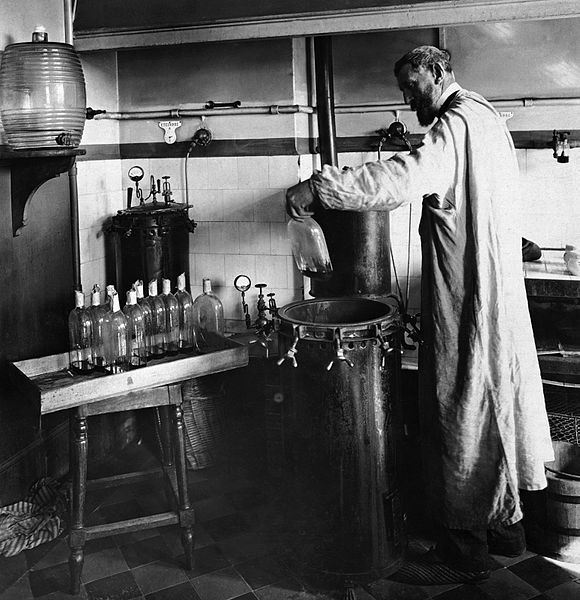Louis Pasteur was a French chemist, pharmacist, and microbiologist renowned for his discoveries of the principles of vaccination, microbial fermentation, and pasteurization, the last of which was named after him. His research in chemistry led to remarkable breakthroughs in the understanding of the causes and preventions of diseases, which laid down the foundations of hygiene, public health and much of modern medicine. Pasteur's works are credited with saving millions of lives through the developments of vaccines for rabies and anthrax. He is regarded as one of the founders of modern bacteriology and has been honored as the "father of bacteriology" and the "father of microbiology".
Photograph by Nadar
The house in which Pasteur was born, Dole
Louis Pasteur, French biologist and chemist, 1878, by A Gerschel
Pasteur experimenting in his laboratory
Fermentation is a metabolic process that produces chemical changes in organic substances through the action of enzymes. In biochemistry, it is broadly defined as the extraction of energy from carbohydrates in the absence of oxygen. In food production, it may more broadly refer to any process in which the activity of microorganisms brings about a desirable change to a foodstuff or beverage. The science of fermentation is known as zymology.
Fermentation in progress: carbon dioxide bubbles form a froth on top of the fermentation mixture.
Fermentation is used to produce the heme protein found in the Impossible Burger.
Louis Pasteur in his laboratory







